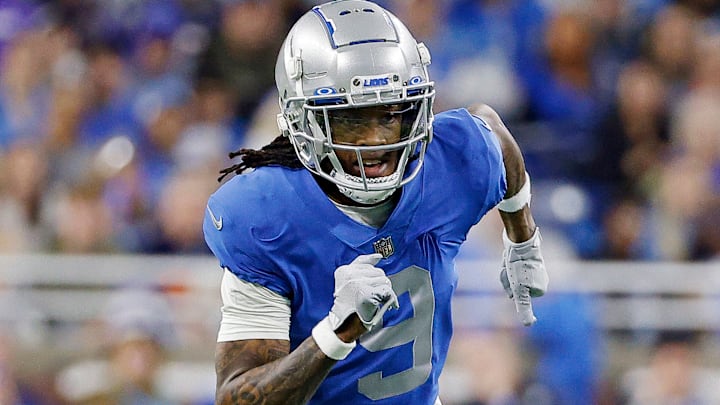It's not shocking to see fleshed out, but Jameson Williams wouldn't appeal his gambling suspension even if he wanted to.
When he made his first public comments about his gambling suspension, with a still-flimsy plea of ignorance, Lions wide receiver Jameson Williams also sounded resigned to just accepting a six-game ban without a fight. Overall, with the odds to win an appeal against the NFL naturally seeming somewhat slim, that was probably the best sentiment to convey.
The NFL's retroactive effort to bolster the information they're putting out about the gambling policy opened up the idea that Williams, or anyone else who has been suspended for violating the policy, should have their suspensions re-assessed or reduced. Suggesting Williams should not have his suspension reduced is a lonely hill to stand on.
But in general, why wouldn't there be appeal rights for a player suspended for violating the gambling policy? Like there is with other suspensions. The odds to win an appeal are independent of having the right to do so.
Jameson Williams won't appeal his gambling suspension, even if he wanted to
On Wednesday, Mike Florio of Pro Football Talk had some insight on the process used to dole out gambling suspensions.
"Per a source with knowledge of the situation, none of the suspensions imposed on players since 2021 (Calvin Ridley) resulted in any type of formal hearing. Instead, the league and the NFL Players Association negotiated a suspension for each player accused of violating the policy."
So commissioner Roger Goodell has ultimate and overriding authority, with everything stacked in favor of that authority.
Florio went into that aspect.
"With that immense power, the league can approach the player with a proposed punishment — along with a threat/promise that if there’s a full-blown hearing the league will push for a longer suspension. As a result, players don’t fight. They don’t request or receive the evidence proving the violation. They don’t get a chance to argue that they were not properly informed as to the rules. They just work it out, with the help of the union, and move on."
Williams did say he did not know the specifics of his violation. Within the idea he did not/could not ask for evidence proving it, or the league won't offer it even if it was asked for, that makes a bit more sense now. A different tentacle to that is he flat-out didn't remember (though it's not as if he'd say publicly anyway), for whatever reason which may not necessarily look great.
Right or wrong, good or bad, gambling is a different area than other things NFL players can be suspended for. So the league has taken more forceful authority about it, on the "protecting the integrity of the game" angle, With no pushback from the NFLPA, and thus the practical elimination of any path to an appeal of a suspension.
So, presumably with some advisement from the NFLPA, Williams got and accepted six games knowing he had no ability to make a credible case for an appeal. Not to say it's right, or that he'd even win an appeal if he could do it. But the ability to appeal a gambling suspension effectively does not exist, and that's probably never going to change.
